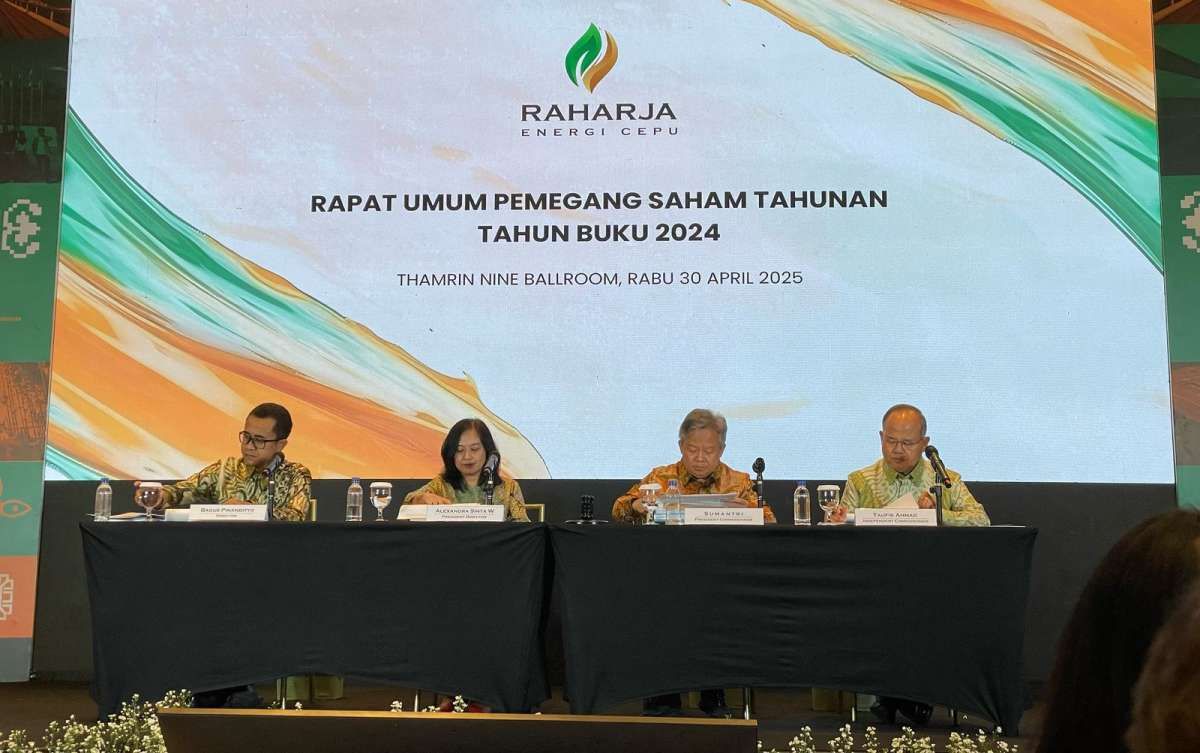Indonesia’s energy landscape is undergoing a transformation — and at the center of this change is PT Raharja Energi Cepu Tbk (RATU), a company aggressively expanding its upstream oil and gas assets. Through a series of calculated investments and acquisitions, Raharja Energi Cepu aims to secure a long-term stake in the country’s vital energy infrastructure. Their latest strategy involves the acquisition of two productive oil and gas blocks located in Java and Sumatra, a move that will significantly bolster their portfolio.
The Raharja Energi Cepu acquisition isn't just a business expansion — it reflects a broader strategy to contribute to national energy resilience while positioning the company as a major upstream energy player in Southeast Asia.
This article explores the company’s background, acquisition plans, strategic positioning, financial health, and long-term implications for Indonesia’s energy economy.
A Growing Portfolio of Strategic Assets
From Cepu to Jabung: Establishing an Upstream Foothold
Currently, Raharja Energi Cepu owns a 2.2423% participating interest in the Cepu Block through PT Petrogas Jatim Utama Cendana (PJUC). The Cepu Block is a key national energy asset located in East Java. Operated by ExxonMobil, it has contributed nearly 30% of Indonesia's national oil production. This alone places the company in a significant position in the upstream oil and gas value chain.
In addition, the company holds an 8% participating interest in the Jabung Block in Jambi Province, operated by PetroChina. This block is home to over 185 active producing wells, 3 floating storage units (FSUs), and a pipeline network of over 530 kilometers — making it one of the most productive upstream zones in the region.
These strategic holdings indicate the company's clear ambition to dominate the upstream segment. The new Raharja Energi Cepu acquisition will further this goal.
New Acquisitions in Java and Sumatra
Raharja Energi Cepu is currently in the process of acquiring two new oil and gas blocks, both of which are already in production. Though the names of the blocks have not been publicly disclosed, company insiders suggest that the assets are located in Java and Sumatra — two regions known for mature oil production basins and solid infrastructure.
The move signals a shift from passive participation to active expansion, as the company positions itself to become a more influential entity in the upstream sector.
Financial Performance Supports Aggressive Growth
Post-IPO Momentum
Raharja Energi Cepu went public in January 2025, raising approximately IDR 624.46 billion in its Initial Public Offering (IPO). The funds have been strategically allocated toward acquisition and expansion, setting the foundation for long-term growth.
In the first half of 2024, the company reported a 143% increase in revenue year-on-year, hitting USD 28 million. Net profit for the same period stood at USD 7.4 million, reflecting a 20.3% increase over the previous year.
This financial momentum, combined with strong asset performance, has made Raharja Energi Cepu a darling of local energy investors and institutional funds. The latest acquisitions are expected to add significant cash flow in the coming years.
Strategic Importance for Indonesia's Energy Security
Indonesia is in dire need of increased domestic energy production. While the country has a strong history in oil and gas, declining output and growing consumption have created a widening energy gap.
By acquiring productive and underutilized blocks in Java and Sumatra, Raharja Energi Cepu not only strengthens its own asset base but also contributes to Indonesia's national energy security. These acquisitions will enable increased local production, reduced import dependency, and better resource management — especially in light of Indonesia's ambitious energy transition roadmap.
This acquisition also supports Indonesia’s “One Map Energy Strategy,” which seeks to streamline upstream exploration and production across various provinces under a unified regulatory framework.
Sustainability and Corporate Responsibility
While Raharja Energi Cepu’s expansion focuses on fossil fuel energy, the company has also shown signs of aligning with environmental, social, and governance (ESG) standards.
In its latest corporate report, the company emphasized responsible drilling practices, local community engagement, and environmental protection as key pillars of its operating philosophy.
These sustainability efforts are essential as Indonesia moves toward a cleaner energy mix. While fossil fuels will remain dominant in the near term, integrating sustainable practices into oil and gas operations will be essential for long-term competitiveness.
Challenges and Market Risks
Despite its promising trajectory, Raharja Energi Cepu faces several challenges. These include:
- Regulatory Risks: Indonesia’s oil and gas sector is heavily regulated, and any shift in policy could impact upstream investments.
- Operational Risks: Integrating and operating multiple blocks requires high-level technical and logistical coordination.
- Global Price Volatility: As with all oil and gas firms, the company remains vulnerable to fluctuations in global crude prices.
However, Raharja’s diverse asset base and strong financial backing place it in a relatively stable position to weather these challenges.
The Road Ahead
With the Raharja Energi Cepu acquisition of two new oil and gas blocks, the company is setting the stage for long-term dominance in Indonesia’s upstream sector.
By combining strategic asset acquisition with operational excellence and sustainable practices, the company is not just growing — it’s leading.
In the next few years, Raharja Energi Cepu could well be one of the largest independent upstream oil and gas players in the country, with a potential to expand regionally as well.
For investors, energy analysts, and policy makers, this acquisition is a development worth watching closely.
Read More






 Friday, 23-01-26
Friday, 23-01-26







